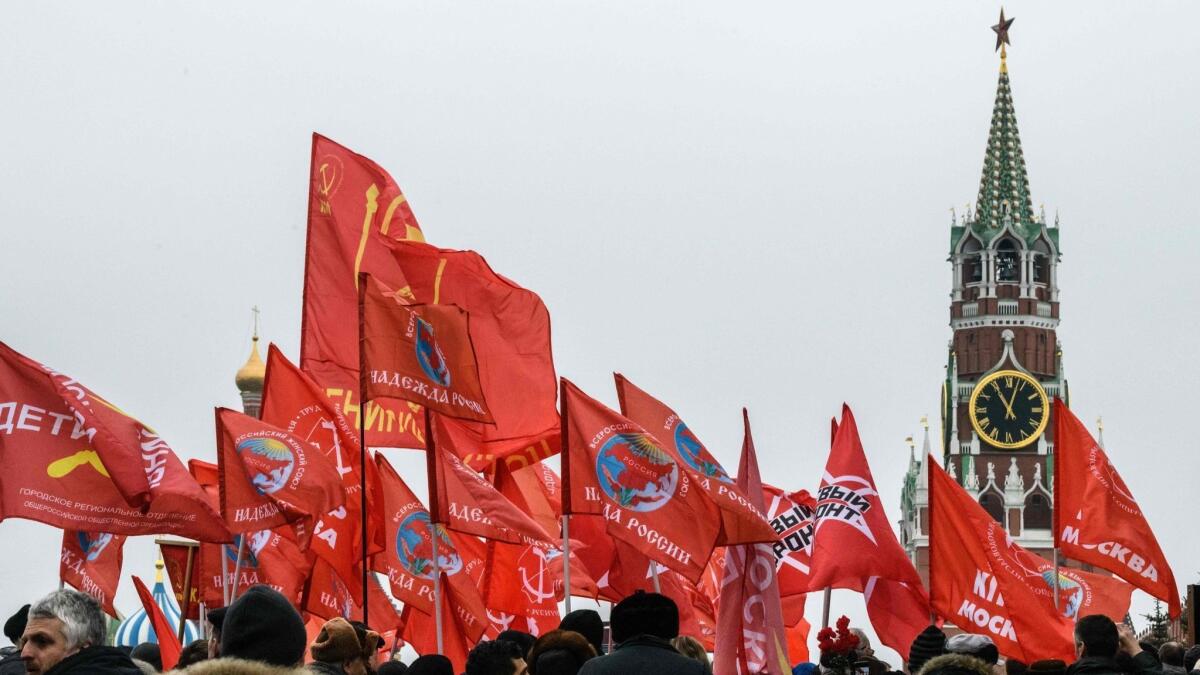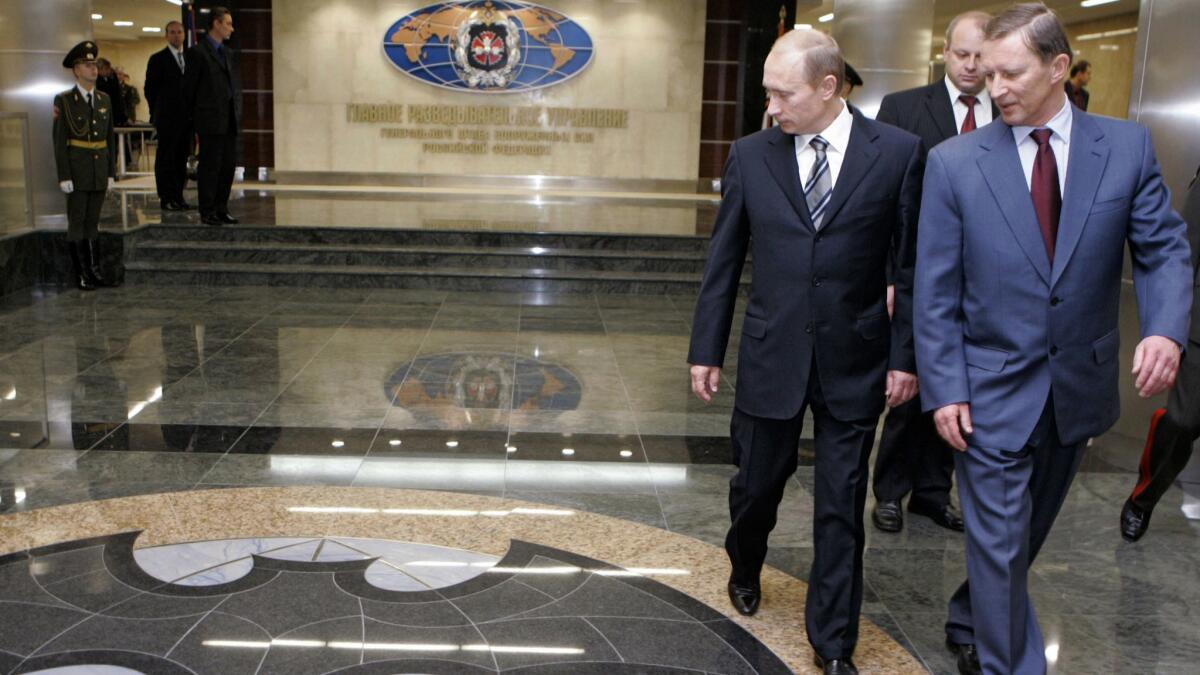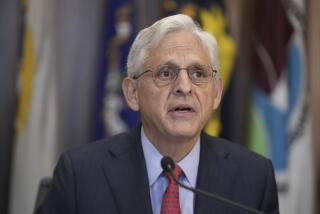The Russia investigation is over, but Russian meddling in elections isn’t

When Robert S. Mueller III turns off the lights in the special counsel’s office for the final time, he will leave behind an exhaustive blueprint of how Moscow meddled in the last presidential election, one pieced together from electronic blueprints, sensitive communications intercepts and financial records.
It was an arduous task, but the truly hard part will be ensuring the Russians aren’t able to pull that same blueprint off the shelf and use it in future campaigns.
A review of court filings and independent studies, as well as interviews with experts, shows that no one should expect that the end of Mueller’s work means an end to Russian political meddling.
“There’s been nothing as a result of the investigation that’s helping us resolve the problem,” said Alina Polyakova, a foreign policy fellow at the Brookings Institution in Washington. “We’re just at the very, very beginning of this reckoning.”
President Trump has downplayed or outright denied that Moscow meddled with the election, questioning U.S. intelligence conclusions while standing next to Russian President Vladimir Putin at their summit in Helsinki, Finland, last year.
“They said they think it’s Russia,” Trump said. “I have President Putin. He just said it’s not Russia. I will say this, I don’t see any reason why it would be.”
Trump’s assessment is not shared by Atty. Gen. William Barr, who sent a letter to Congress on Sunday summarizing Mueller’s findings.
Barr backed up the president’s repeated assertions that no one from his team conspired with the Russian government, but he stood by Mueller’s determination, shared by U.S. intelligence agencies, that Moscow had launched a covert effort to meddle in U.S. politics. Citing the special counsel’s investigation, Barr described a two-pronged effort by the Russian government to influence U.S. politics during the campaign.
The first part, a disinformation campaign allegedly funded by Yevgeniy Prigozhin, an oligarch close to Putin, is a relatively cheap and difficult-to-trace way of interfering in another country’s politics. Such campaigns spread divisive content on social media, and Moscow has proved itself to be a persistent practitioner even after its actions during the last presidential election were revealed.
A prime example came a little more than a year ago, when Mueller unveiled his indictment targeting the Internet Research Agency, the St. Petersburg, Russia-based troll farm that led the disinformation efforts. The day Mueller announced the indictment, the trolls were back online to rile both sides, with some supporting Trump and others cheering the prosecutors.
“We didn’t vote for Trump because of a couple of hashtags shilled by the Russians. We voted for Trump because he convinced us to vote for Trump,” wrote a Russian account calling itself the “Marlboro Man.”
Another account with the handle “Jemisha” taunted the president with the tweet, “You’re next on Mueller’s list!”
The tweets, part of a database of now-defunct accounts tied to the Internet Research Agency, were a show of brazenness from Russia, which has always denied its role in the meddling.
“They do not care how many times they’ve been exposed,” said Jakub Kalenský, who is based in Prague as a nonresident senior fellow at the Atlantic Council’s Eurasia Center.
“Until there’s a very robust, very strong step 2, it will not stop Russia.”
Prigozhin and a dozen other Russians were indicted by Mueller. Last year the Justice Department’s national security division charged another Russian who allegedly acted as the Internet Research Agency’s accountant. The indictment outlined how the disinformation campaign was continuing and funding for the effort was only increasing. Since Russia has no extradition agreement with the U.S., however, there’s little chance that any of the indicted Russians will stand trial.
The other prong of Moscow’s operation, as described by Barr in his letter, was a hacking effort allegedly carried out by Russian military intelligence officers. A dozen officers were indicted by Mueller, who outlined how they used custom malware to access Democratic Party computers and extract thousands of internal documents and emails. Two troves of emails were released through WikiLeaks during the campaign, one right before the Democratic National Convention and the other in the month before the election.
During the campaign, Trump publicly called on Russia to hack into Hillary Clinton’s controversial private email server. Although Trump later said he was joking, Russian operatives tried for the first time to access Clinton’s system that night, according to one of Mueller’s indictments.
Max Bergmann, who directs the Moscow Project at the Center for American Progress, said Trump and the Russians have often echoed each other with their messaging.
“Russians don’t need to invent new messages,” he said. “They just need to amplify the president and many of his supporters on the right.”

Washington has become more aggressive to combat the problem. U.S. Cyber Command, a branch of the military, sent messages directly to Russian trolls to warn them that they were being watched, the New York Times recently reported. And the Washington Post reported that the same operation shut down web access at the Internet Research Agency on the day of November’s midterm elections, another shot across the Russians’ digital bow.
Social media companies like Twitter and Facebook have also been deactivating accounts suspected of being part of foreign influence operations, a game of digital Whac-A-Mole.
But national security officials expect the challenge to continue as the U.S. prepares for another presidential election next year.
“What has continued virtually unabated, and just intensifies during the election cycles, is this malign foreign influence campaign,” FBI Director Christopher Wray said during a recent conference in San Francisco. The goal, he said, is to “sow divisiveness and discord, to pit Americans against each other, to undermine our faith in democracy.”
The problem has been the subject of two reports commissioned by the Senate Intelligence Committee and released late last year.
“Active and ongoing interference operations remain on several platforms,” said one of the reports produced by a team from New Knowledge, Columbia University and Canfield Research.
Ben Nimmo, a British-based senior fellow for the Atlantic Council’s Digital Forensic Research Lab, said Russians have various methods of staying one step ahead of authorities. They’ve taken greater steps to disguise their digital tracks, he said, such as registering social media accounts with internet-based phone numbers rather than Russian mobile phones.
Nimmo said there’s also been an increasing focus on Instagram, where the more visual format minimizes linguistic clues that can reveal the account isn’t run by an American.
“The sheriff has now ridden into town. But the bad guys are still there,” he said. “The bad guys are trying to figure out new ways to get away with what they’re doing.”
Disinformation campaigns are likely to gain traction as long as the targets — in this case, U.S. voters — aren’t skeptical enough about what they’re reading and watching online.
Polyakova said what’s needed is a “bottom up” approach, such as a nationwide curriculum or awareness program to help people better understand the increasingly hazardous information landscape. It’s a more ambiguous challenge than bringing indictments against Russian trolls, but she said it could end up being more critical in the long run.
“The big question is how to get citizens, in all democracies, to discern between content that’s meant to manipulate you and independent reporting,” Polyakova said.
Critics say the lack of leadership from the White House has hampered the country’s efforts to defend itself, especially since Trump has viewed questions about Moscow’s role as an attempt to erode the legitimacy of his victory.
“We are marginally better prepared,” said Rep. Adam B. Schiff (D-Burbank), chairman of the House Intelligence Committee. “But we should be much further along than we are, and this should be a higher priority for the administration.”
“I don’t think we have the full-court press that we should,” he added.
An additional concern is other countries following Russia and launching similarly extensive operations to meddle in U.S. politics. There are signs that Iran has already taken steps, and Twitter announced in October that it had deactivated 770 accounts linked to the Middle Eastern country.
The accounts had spread pro-Tehran messages, sometimes while posing as independent news sources.
“The amount of players who will be in the game of deception will likely grow exponentially by 2020,” said Bret Schafer, a social media analyst with the German Marshall Fund’s Alliance for Securing Democracy. “I don’t necessarily think we’re in a better spot today than we were three or four years ago.”
More to Read
Get the L.A. Times Politics newsletter
Deeply reported insights into legislation, politics and policy from Sacramento, Washington and beyond. In your inbox three times per week.
You may occasionally receive promotional content from the Los Angeles Times.











